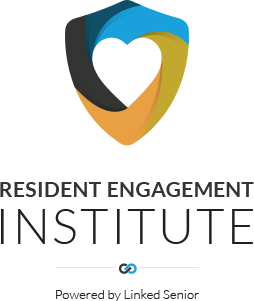It is a humbling experience to be told you are wrong, especially when that feedback comes from a major client and mentor! A few years ago, I considered redefining our company’s focus as a “dementia engagement platform” instead of a “resident engagement platform.” The response to this proposed change from one client was especially strong. Basically, he said it made no sense and that the word “dementia” had no place in the definition. He shared that dementia itself isn’t the problem but that the real issue is our industry’s inability to create meaningful and purposeful engagement opportunities for older adults in our care no matter their cognitive ability. “Dementia is not my problem,” he argued. “What is my problem is that we are failing our staff by not having tools available for them to help honor the needs and preferences of the residents we serve.” It turns out, he was absolutely correct. There is currently no cure for Alzheimer’s disease and related dementias, but there are many solutions for addressing the epidemic of inadequate resident engagement.
I reflected on this feedback and realized that for many older adults, including those in my own family, the long-term care community they move into will be their last home and so helping them find purpose is even more important. This is why staff must have access to tools that can help them honor resident preferences and improve models of care. Our industry also needs to consider what specific changes are needed to deliver on the promise of person-centered care:
- Promote Culture Change
It is time to reframe our conversation around end-of-life care. About 17% of older adults will spend their last days in an institutional care setting. The best communities are those that understand that dying is part of living and that there is joy to be experienced up until a person’s last breath. Far too often, society judges the value of an older person’s life based on what they can “still” do based on their diagnosis and chronic conditions. This is a tragedy since a truly person-centered perspective focuses on each person’s capacity to achieve what is most important to them at that particular time. We shouldn’t be looking to only solve a diagnosis or condition but instead focus more of our energy on fixing the entire care system and celebrating every individual for who they are and what they can do right now. Part of culture change is also encouraging all community staff members, not just those who are in the activities department, to take the time to have meaningful conversations and interactions with older adults living there.
- Invest in the Workforce
There are a number of ways to train and support our workforce so that they are most effective when they engage their residents. One of my favorites is the Validation method, developed in the 1970s by Naomi Feil. It enables the caregiver to communicate effectively with the person living with cognitive change and helps “meet the person, wherever he or she might be” instead of bringing them back to reality. It also helps relieve their stress, and enhance their dignity and happiness in the final stages of life.
- Provide Staff with Supportive Tools
Technology should only be considered when it is used to support a workflow or remove a barrier for staff. Since resident engagement continues to be paper-based today, we are failing our staff because that format makes it extremely difficult for them to truly meet the needs and preferences of all their residents with person-centered programming. When technology is used to support staff, their efficiency is increased so that they have time for meaningful engagement and they can also increase the total number of engagement hours each resident receives. Having this additional time means that resident isolation can be reduced and that engagement activities can be tailored to fit each person’s unique profile.
Thinking about what we can do to better serve people living with cognitive change helps much more than focusing solely on a diagnosis. This perspective also gives staff a more actionable agenda for their work each day. In no way is anyone saying that dementia such as Alzheimer’s isn’t a terrible thing; many of us have experienced it in a very close manner, for me and my family it has been devastating. But when working with older adults, we have everything to gain by focusing on what we can do versus what we can’t, and the great news is that resident engagement is full of opportunity for that!

